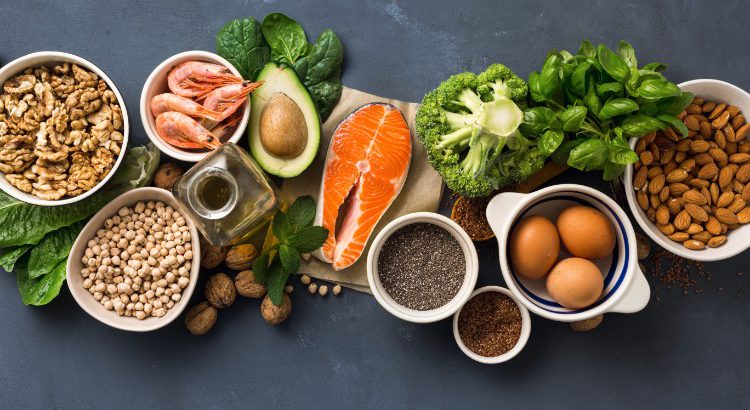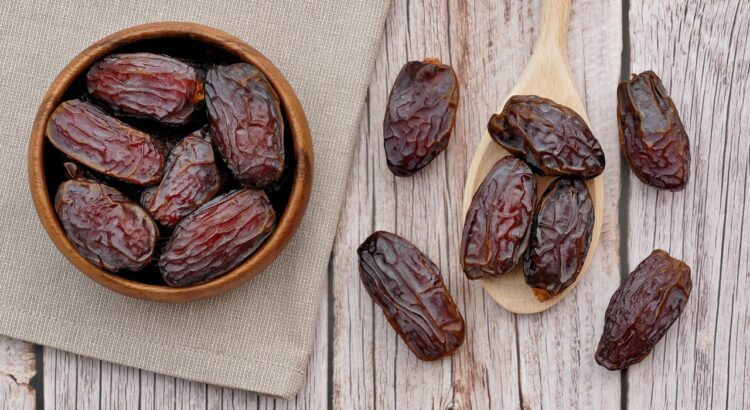Looking for a holiday treat to snack on that’s not cookies? Here it is: a whole food-based sweet that is full of fiber, healthy fats and flavor. The variety of nuts in this recipe provide an array of heart-healthy polyunsaturated and monounsaturated fat. Roasting the nuts will bring out their warm toasty taste, and with the natural caramel-like flavor of dates and a hint of cardamom, these treats are sure to satisfy a sweet tooth while providing your body with rich nutrition. You can also roll the “dough” into balls, and coat in a blend of cocoa powder and cinnamon for a more truffle-like treat. —Dana Mealing, RDN, LDN, community nutrition educator, Tevis Center for Wellness
Tag: healthy eating

Butternut Chicken Stew
This is the perfect meal to warm up this season. Winter squash of any kind—butternut, acorn, kabocha, delicata—is a great complex carbohydrate to include in our diet. For one cup of butternut squash, you get about 3g of fiber, 16g of carbs and a great source of vitamin A and vitamin C at 63 calories. That’s a lot of nutrition for that much energy! Winter squash is also lower carb than potatoes for the same serving size, but it has a similar texture, making it a great choice for those who are watching their blood sugar. —Dana Mealing, RDN, LDN, community nutrition educator, Tevis Center for Wellness

Mediterranean Salad
It’s a new year, and we’re all looking for a fresh (and refreshing) start! Nothing is quite as refreshing as a crispy crunchy cold wedge salad with a healthy twist. Blue cheese dressing is tasty, but it’s typically made with heavy cream and mayonnaise, making it high in saturated fat and not the most physically nourishing choice. This recipe has a Mediterranean alternative, made with heart-healthy olive oil and tahini.
The Mediterranean diet is known for its many health benefits, such as its anti-inflammatory qualities and positive effects regarding heart health and even cognitive well-being. If you’re looking for some easy nutrition guidelines to start 2024, Mediterranean is a good place to go.

Healthy Choices for the Holiday Season
When the cold weather comes whooshing in, suddenly there are endless cookies, cakes, candies and mouth-watering traditional foods in abundance all around us. Sometimes it can be difficult to make healthy choices or stick to a plan.
Here are four tips to help guide you through this holiday season:
Read More

NEW! Jumpstart to Wellness Program
Do you want to get healthy but don’t know how to begin? Join us for Jumpstart to Wellness!

The Truth About Added Sugar
Have you ever thought about how much added sugar you may be eating? According to the U.S. Department of Agriculture, adults eat about 17 teaspoons of added sugars daily! Read More

Mindful Eating Through the Holidays
During the holidays, high caloric foods and drinks are readily available, so how can we be mindful of our intake to prevent weight gain?
Here are five ways to stay focused:

Diet Culture and Nutrition Credibility
Today we are surrounded by many opinions and suggestions for how to eat or what diet is best. Nutrition can be a very difficult subject to navigate and understand because of so much conflicting information coming from all directions.

Omega-3 Fats
Let’s face it, most Americans do not get enough omega-3 fats in their diet. Omega-3 fats are a type of unsaturated fat that is essential in the diet, meaning we must obtain it from food sources.
Make Your Kidney Health a Priority
March is National Kidney Health Month, a time dedicated to raising awareness about the importance of maintaining or managing your kidney’s health.
